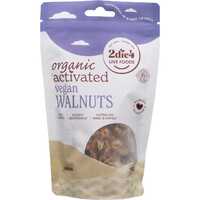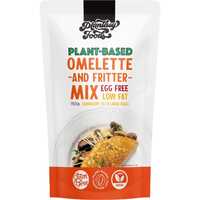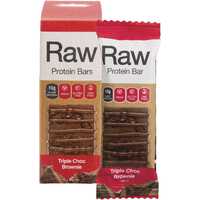What we eat can have a profound influence on personal health and environmental sustainability. Instead of following strict diet plans with set rules and unrealistic expectations, some people have embraced a new flexible way of eating. The flexitarian diet emphasises plant-based foods, but depending on the person and scenario, it may also incorporate dairy, eggs, and meat products. There are no set calorie or macronutrient goals in a flexitarian diet, just a renewed focus on healthy eating for the benefit of the individual and the planet.
In this article, we'll take a deep dive into modern flexitarianism and what it means. We'll go over the basics, look at the trends, and review the many benefits of this diet.
What is a Flexitarian Diet?
A flexitarian is a person who observes a non-exclusive plant-based diet. Individuals following this diet are normally semi-vegetarian, with various plant-based foods augmented with occasional meat, seafood, and dairy products. Flexitarians are all different, with people often having a fluid relationship with certain foods based on various factors. For example, some people only eat specific types of meat, others only eat meat when their body craves it, and some only eat ethically sourced meat products.
As you might expect, given its name, flexitarianism is a flexible concept that's hard to pin down. By definition, its proponents avoid strict eating patterns and often change their diet over time. Among other things, individual choices may be based on personal health, animal welfare, habitat destruction, or climate change. There's also a pragmatic aspect to this diet, with some people enjoying meat when it's cooked for them at dinner parties or otherwise going to be thrown out.
While this flexible attitude is looked down upon by some vegetarians and vegans for lacking integrity, it's being embraced by a growing number of people. 100% meat-free diets seem unrealistic for a large proportion of the global population, and this new flexible approach offers a practical way forward. If people started consuming less meat on a wide-scale basis without giving it up entirely, we would see numerous environmental benefits and an easier transition away from harmful farming practices.
The following flexitarian diets are well-established and easy to define:
- Demitarianism — the practice of reducing meat consumption, ideally to around half its current levels
- Pescetarian diet — the practice of eating fish and shellfish along with plant-based foods
- Pollotarian diet — the practice of eating chicken and possibly eggs with plant-based foods
- Macrobiotic diet — a plant-based diet focused on cereals, supplemented with vegetables and occasional seafood
- Planetary health diet — a dietary paradigm dedicated to environmental sustainability and food security
- Social omnivores — the act of limiting meat consumption to social settings, in private and/or public settings
The Growing Rise of Flexitarianism
In recent years, flexitarian consumers have grown into a major market force. While this style of eating has been popular in Europe for many years, it continues to spread across the world. According to recent research, 50% of US households buy plant-based foods, and 98% of these consumers also buy meat. Overall, 72 million households in the US can now be considered flexitarian. In Australia, 19% of people consider themselves flexitarians, eating a mostly plant-based diet with occasional meat and fish dishes.
In recent years, we have seen two opposing health food trends. On the one hand, vegetarianism and veganism have continued to grow in influence, with more people saying no to meat as they embrace a 100% plant-based diet. There has also been a counter-trend, however, with the paleo movement rising in popularity as people embrace the nutritional value of meat. As educated consumers look into the benefits of both diets, flexitarianism has become the preferred option for many.
The growth of flexitarianism opens up new opportunities for health-focused food and beverage companies. While strict vegetarian and vegan diets will always be limited to a subset of consumers, this flexible approach to healthy eating is potentially without limit. If the general population reduced their meat consumption by even a small amount, it would have a much greater influence on environmental sustainability than a small uptake in strict vegetarian markets.
Benefits of Flexitarianism
People have many reasons for embracing flexitarianism, from personal health and fitness to ethical and environmental concerns. There's also the added benefits of affordability and convenience, with a flexible approach to eating taking all these issues into account.
Let's review the key benefits of a flexitarian diet:
Better health outcomes
For the vast majority of people in Western society, eating less red meat is a good idea. While meat is an excellent source of protein and can play an important role in a healthy diet, most people overdo it. According to Australian Dietary Guidelines, we should limit red meat consumption to 455 g of cooked lean red meat per week. While this is actually 600-700 g when measured raw, it equates to just 65 g per day.
On average, Australians eat around 90 kg of meat each year, which works out to just under 250 g per day. While this is around four times the recommended limit, most of this intake comes from poultry. In terms of red meat alone, Australians aged 19 years and over consume almost 560 g of red meat per week, which is still way above recommended levels. Eating all this meat can have negative — and rather serious — health implications.
Clear links have been found between high meat intake and a higher risk for heart disease, cancer, diabetes, and premature death. According to some experts, people should reduce their meat servings and consider red meat a luxury instead of a staple. This aligns with the approach of many flexitarians, who choose to supplement a plant-based diet with occasional meat dishes. Not only is this a great way to eat less meat, but it's also a simple way to boost your intake of healthy vegetables, fruits, and grains.
Enhanced sustainability
Eating meat has a huge environmental footprint, and collective diet changes can be a positive influence. According to data published in Nature Food, food systems are responsible for an estimated 34% of global emissions. Most of this contribution came from agriculture and land-use activities at 71%, along with retail, transport, waste management, and other food systems. Most of this impact is due to meat, with global greenhouse gas emissions from animal-based foods twice those of plant-based foods.
Once again, flexitarianism represents a practical and realistic solution to this problem. While plant-based foods still have an impact on natural ecosystems and sustainability is certainly not a given, reducing meat consumption can make a positive impact. Adopting a flexible approach to meat eating can also be beneficial to animal welfare. While eating meat will always harm animals by definition, approaching it as a luxury may help people to think more about what they're buying.
More affordable
The current cost of living crisis is affecting the entire world. The price of meat is going up all the time, and more people are looking for viable alternatives. There are lots of great plant-based protein sources, many of which offer the benefits of meat at a much lower price. Basic examples include beans and pulses, nuts and seeds, and cereals and grains. Tasty meat substitutes have been eaten by vegetarians for many years, including tofu, tempeh, and numerous soy products.
If you want maximum protein without buying meat, certain plant-based superfoods are perfect for the job. From spirulina and quinoa to amaranth and chia seeds, it's possible to get the protein you need without eating meat all the time. There are also lots of highly effective protein powders on the market, which you can easily add to shakes, smoothies, and cereals. Combining whole foods and supplements wisely helps you to stay healthy and save money. This is great for the weekly budget, and when you do buy meat from time to time, you're more likely to have money for the good stuff.
Greater convenience
Along with the driving forces listed above, which are shared by traditional vegetarians and vegans, flexitarians enjoy the added benefit of convenience. Being open to eating more foods makes it easier to shop, dine out, and eat with your friends and family. More than that, however, it can also be more sustainable for your lifestyle. Just like strict exercise regimes, setting unrealistic limits on what you can and can't eat often leads to feelings of failure and guilt. Instead of alternating between strict vegetarian and meat-heavy diets like some people do, allowing room for movement can lead to a healthier and more stable diet over time.
If you're looking for a great range of healthy natural foods and supplements, we have everything you need. Whether you're a vegan, a vegetarian, a flexitarian, or none of the above, Healthy Being is dedicated to your well-being. So check out our great range of products today or contact our team to learn more.


 Certified Organic
Certified Organic Vegan Friendly
Vegan Friendly  Vegetarian
Vegetarian Organic Ingredients
Organic Ingredients Dairy Free
Dairy Free Gluten Free
Gluten Free Keto Friendly
Keto Friendly


































